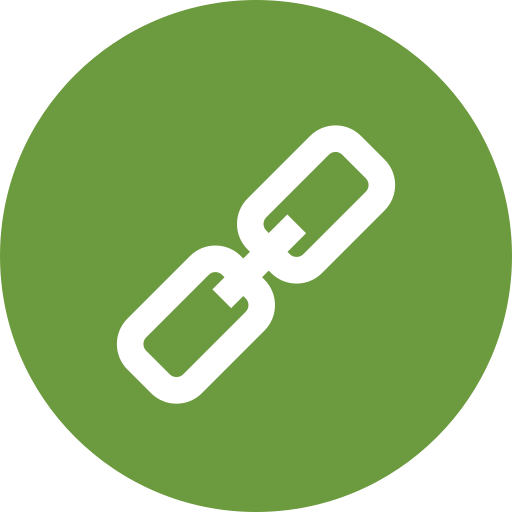| Product name | Per Pill | Savings | Per Pack | Order |
|---|---|---|---|---|
| 30 pills | $0.98 | $29.34 | ADD TO CART | |
| 60 pills | $0.74 | $14.40 | $58.68 $44.28 | ADD TO CART |
| 90 pills | $0.66 | $28.81 | $88.02 $59.21 | ADD TO CART |
| 120 pills | $0.62 | $43.21 | $117.36 $74.15 | ADD TO CART |
| 180 pills | $0.58 | $72.02 | $176.04 $104.02 | ADD TO CART |
| 270 pills | $0.55 | $115.23 | $264.06 $148.83 | ADD TO CART |
| 360 pills | $0.54 | $158.43 | $352.08 $193.65 | ADD TO CART |
| Product name | Per Pill | Savings | Per Pack | Order |
|---|---|---|---|---|
| 30 pills | $0.89 | $26.68 | ADD TO CART | |
| 60 pills | $0.73 | $9.60 | $53.35 $43.75 | ADD TO CART |
| 90 pills | $0.68 | $19.21 | $80.03 $60.82 | ADD TO CART |
| 120 pills | $0.65 | $28.81 | $106.70 $77.89 | ADD TO CART |
| 180 pills | $0.62 | $48.02 | $160.06 $112.04 | ADD TO CART |
| 270 pills | $0.60 | $76.83 | $240.09 $163.26 | ADD TO CART |
| 360 pills | $0.60 | $105.64 | $320.12 $214.48 | ADD TO CART |
Donepezil, a medication primarily used to treat Alzheimer's disease, has been a cornerstone in the management of this debilitating condition. Available in various strengths, including 5 mg and 10 mg, Donepezil works by enhancing cholinergic function in the brain, thereby improving cognitive function and slowing down the progression of symptoms associated with Alzheimer's. This article aims to provide an in-depth look at Donepezil, its uses, benefits, and the various options available for purchasing this medication, including buying Donepezil online and ordering Donepezil with Amex.
Introduction to Donepezil
Donepezil belongs to a class of medications known as cholinesterase inhibitors. It functions by preventing the breakdown of acetylcholine, a neurotransmitter in the brain that is involved in memory and learning. By maintaining higher levels of acetylcholine, Donepezil helps to improve memory, attention, and the ability to perform daily activities in individuals with Alzheimer's disease.
Benefits of Donepezil
The benefits of Donepezil are multifaceted:
- Improvement in Cognitive Function: Donepezil has been shown to improve cognitive function in patients with mild to moderate Alzheimer's disease.
- Slowing Down Disease Progression: While it does not cure Alzheimer's, Donepezil can slow down the progression of symptoms, improving the quality of life for patients.
- Enhanced Daily Functioning: Patients on Donepezil may experience improvements in their ability to perform daily tasks and activities.
Purchase Options for Donepezil
For individuals looking to order Donepezil, there are several options available, including:
- Buying Donepezil Online: This is a convenient option for those who prefer the privacy and ease of online shopping. Websites often offer discount Donepezil 5 mg buy online and buy cheap Donepezil 10 mg on line options.
- Ordering with Amex: Many online pharmacies accept Amex, allowing for secure and convenient payment. Options like order Donepezil with Amex and 5 mg Donepezil order with Amex are popular.
- Purchase from India: For those looking for more affordable options, buying Donepezil from India can be a viable choice, with many generic versions available at lower costs.
Tables: Donepezil Purchase Options
| Purchase Option | Description | Benefits |
|---|---|---|
| Buy Donepezil Online | Convenient online purchase | Privacy, ease of use |
| Order with Amex | Secure payment option | Convenience, security |
| Purchase from India | Affordable generic options | Cost-effectiveness |
| Buy Generic Donepezil 5 mg On Line | Affordable version of the medication | Cost savings |
| Order Donepezil Master Card | Secure payment processing | Convenience, security |
Lists: Considerations for Buying Donepezil
Before You Buy:
- Consult a Doctor: Ensure you have a prescription for Donepezil.
- Check Online Reviews: Look for reputable online pharmacies.
- Verify Medication Strength: Ensure you are purchasing the correct strength (5 mg or 10 mg).
- Payment Security: Opt for secure payment methods like Amex or Mastercard.
- Delivery Options: Consider fast delivery options like 5 mg Donepezil buy fast delivery.
After Purchase:
- Follow Dosage Instructions: Adhere to your prescribed dosage regimen.
- Monitor Side Effects: Be aware of potential side effects and report them to your doctor.
- Store Medication Properly: Keep Donepezil in a cool, dry place.
- Refill Prescriptions: Plan ahead for refills to ensure continuous treatment.
- Regular Check-ups: Maintain regular appointments with your healthcare provider to monitor the effectiveness of the medication and adjust the dosage as necessary.
Conclusion
Donepezil, particularly in its 5 mg and 10 mg forms, offers significant benefits for individuals with Alzheimer's disease, improving cognitive function and daily activities. With the convenience of buying Donepezil online and various payment options like order Donepezil with Amex, accessing this medication has become more straightforward. However, it's crucial to prioritize purchasing from reputable sources, following dosage instructions, and maintaining regular communication with healthcare providers to ensure the best outcomes. Whether you buy Donepezil 5 mg with Visa or opt for a discount Donepezil online mastercard purchase, the key is to find a reliable and secure method that suits your needs, ensuring you can manage Alzheimer's symptoms effectively.
Dementia is a complex and debilitating condition that affects millions of people worldwide, with Alzheimer's disease being the most common cause. Characterized by impairment of memory, judgment, and abstract thinking, as well as changes in personality, dementia can have a significant impact on an individual's quality of life and their loved ones. While there is currently no cure for Alzheimer's disease, various treatment options are available to manage the symptoms of dementia and slow down its progression. In this article, we will delve into the different approaches to treating dementia in patients with Alzheimer's disease, highlighting the importance of a comprehensive and multidisciplinary approach.
Understanding Dementia and Alzheimer's Disease
Before discussing the treatment options, it is essential to understand the underlying causes of dementia and Alzheimer's disease. Dementia is a broad term that refers to a decline in cognitive function, including memory loss, confusion, and difficulty with communication, problem-solving, and judgment. Alzheimer's disease is a progressive neurological disorder that is the most common cause of dementia, accounting for 60-80% of all dementia cases. The exact cause of Alzheimer's disease is still not fully understood, but it is believed to be related to the accumulation of beta-amyloid plaques and tau tangles in the brain, leading to the death of brain cells and a decline in cognitive function.
Symptoms of Dementia
The symptoms of dementia can vary from person to person, but common signs include:
- Memory loss and difficulty learning new information
- Difficulty with communication, including finding the right words and following conversations
- Disorientation and confusion
- Difficulty with problem-solving and judgment
- Changes in personality, including mood swings, anxiety, and agitation
- Difficulty with daily activities, including bathing, dressing, and managing finances
Treatment Options for Dementia
While there is currently no cure for Alzheimer's disease, various treatment options are available to manage the symptoms of dementia and slow down its progression. These include:
Medications
Several medications are available to treat the symptoms of dementia, including:
- Cholinesterase inhibitors: These medications, such as donepezil and rivastigmine, work by increasing the levels of acetylcholine in the brain, which can help to improve memory and cognitive function.
- Memantine: This medication works by blocking the action of glutamate, a neurotransmitter that can be toxic to brain cells in high amounts.
- Antidepressants: These medications, such as selective serotonin reuptake inhibitors (SSRIs), can help to manage symptoms of depression and anxiety, which are common in people with dementia.
Non-Pharmacological Interventions
In addition to medications, several non-pharmacological interventions can help to manage the symptoms of dementia, including:
- Cognitive stimulation therapy: This involves activities such as puzzles, games, and memory exercises to help stimulate cognitive function.
- Behavioral therapy: This involves techniques such as positive reinforcement and redirection to help manage behavioral symptoms, such as agitation and aggression.
- Exercise and physical activity: Regular exercise and physical activity can help to improve cognitive function and reduce the risk of falls and other health problems.
- Social support: Social support from family, friends, and caregivers can help to improve mood and reduce feelings of isolation and loneliness.
Table 1: Comparison of Medications for Dementia
| Medication | Mechanism of Action | Common Side Effects |
|---|---|---|
| Donepezil | Cholinesterase inhibitor | Nausea, vomiting, diarrhea |
| Rivastigmine | Cholinesterase inhibitor | Nausea, vomiting, diarrhea |
| Memantine | Blocks glutamate | Dizziness, headache, constipation |
| SSRIs | Antidepressant | Nausea, headache, insomnia |
Lifestyle Changes
In addition to medications and non-pharmacological interventions, several lifestyle changes can help to manage the symptoms of dementia, including:
- Healthy diet: A healthy diet that is rich in fruits, vegetables, and whole grains can help to improve cognitive function and reduce the risk of chronic diseases.
- Regular exercise: Regular exercise and physical activity can help to improve cognitive function and reduce the risk of falls and other health problems.
- Stress management: Stress management techniques, such as meditation and yoga, can help to reduce stress and anxiety.
- Social engagement: Social engagement and activities, such as volunteering and hobbies, can help to improve mood and reduce feelings of isolation and loneliness.
Table 2: Lifestyle Changes for Managing Dementia
| Lifestyle Change | Benefits |
|---|---|
| Healthy diet | Improves cognitive function, reduces risk of chronic diseases |
| Regular exercise | Improves cognitive function, reduces risk of falls and other health problems |
| Stress management | Reduces stress and anxiety |
| Social engagement | Improves mood, reduces feelings of isolation and loneliness |
Caregiver Support
Caring for a loved one with dementia can be challenging and stressful, both physically and emotionally. It is essential to provide caregivers with the support and resources they need to manage the demands of caregiving, including:
- Respite care: Respite care provides caregivers with a break from caregiving duties, allowing them to rest and recharge.
- Support groups: Support groups provide caregivers with a safe and supportive environment to share their experiences and connect with others who are going through similar challenges.
- Education and training: Education and training can help caregivers to develop the skills and knowledge they need to provide high-quality care and support.
Conclusion
Treating dementia in patients with Alzheimer's disease requires a comprehensive and multidisciplinary approach that incorporates medications, non-pharmacological interventions, lifestyle changes, and caregiver support. While there is currently no cure for Alzheimer's disease, various treatment options are available to manage the symptoms of dementia and slow down its progression. By providing caregivers with the support and resources they need, we can help to improve the quality of life for people with dementia and their loved ones.
Recommendations
Based on the available evidence, we recommend the following:
- Early diagnosis and intervention: Early diagnosis and intervention can help to slow down the progression of dementia and improve the quality of life for people with dementia.
- Comprehensive care planning: Comprehensive care planning that incorporates medications, non-pharmacological interventions, lifestyle changes, and caregiver support can help to manage the symptoms of dementia and improve the quality of life for people with dementia.
- Caregiver support: Caregiver support, including respite care, support groups, education, and training, can help to reduce the demands of caregiving and improve the quality of life for caregivers.
- Regular monitoring and follow-up: Regular monitoring and follow-up can help to identify any changes in the symptoms of dementia and adjust the treatment plan accordingly.
By following these recommendations, we can help to improve the quality of life for people with dementia and their loved ones, and provide them with the support and care they need to manage the challenges of dementia.
























